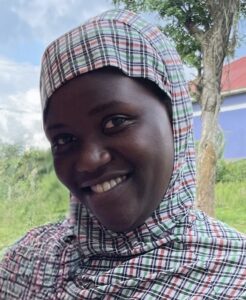 In the 1880s, the governor of Southern Sudan was driven from his country into Uganda. He and his soldiers were given protection from the British in return for their service. This group of Muslim soldiers and their descendants eventually became known as the Nubi people. In the 1890s, the British awarded the Nubi soldiers land in Kenya.
In the 1880s, the governor of Southern Sudan was driven from his country into Uganda. He and his soldiers were given protection from the British in return for their service. This group of Muslim soldiers and their descendants eventually became known as the Nubi people. In the 1890s, the British awarded the Nubi soldiers land in Kenya.
There are an estimated 20,000-40,000 Nubi people living in Uganda today and about 16,000 living in Kenya. The primary language is Nubi, a language heavily influenced by Arabic. There is still not a standardized writing system, though the work is in progress.
Although most Ugandan tribes work as farmers, the Nubi are employed as soldiers, drivers, merchants, or craftsmen. The Nubi staple diet is posho (thick corn flour porridge) in the north, and matoke (boiled and mashed green plantains) in the south. They eat a little goat or chicken when able to afford it. For dress, they have largely adopted a western style of dress, except for Jummah Day (Friday) when they wear the kanju, a Muslim robe.
Despite living in Uganda, a nation that primarily practices some form of Christianity, 99% of the Nubi people are Sunni Islam. Their beliefs date back to the early 1800s, when the Ottoman empire conscripted their ancestors to serve as soldiers and forced conversion to Islam. Islam is a foundational part of Nubi identity. Men are required to attend “Jummah”, the Muslim weekly service and prayer. Some will attend ancestor shrines after attending the Mosque, and some will visit a witch doctor, but they continue to claim Islam as their primary belief. Most East African tribes experience relatively peaceful coexistence of Muslims and Christians. However, when a Nubi accepts Christ, he is often exiled from the Nubi community. (See Pedal to the Medal in this issue for news about a Nubi Bible.)
Winter 2024-25